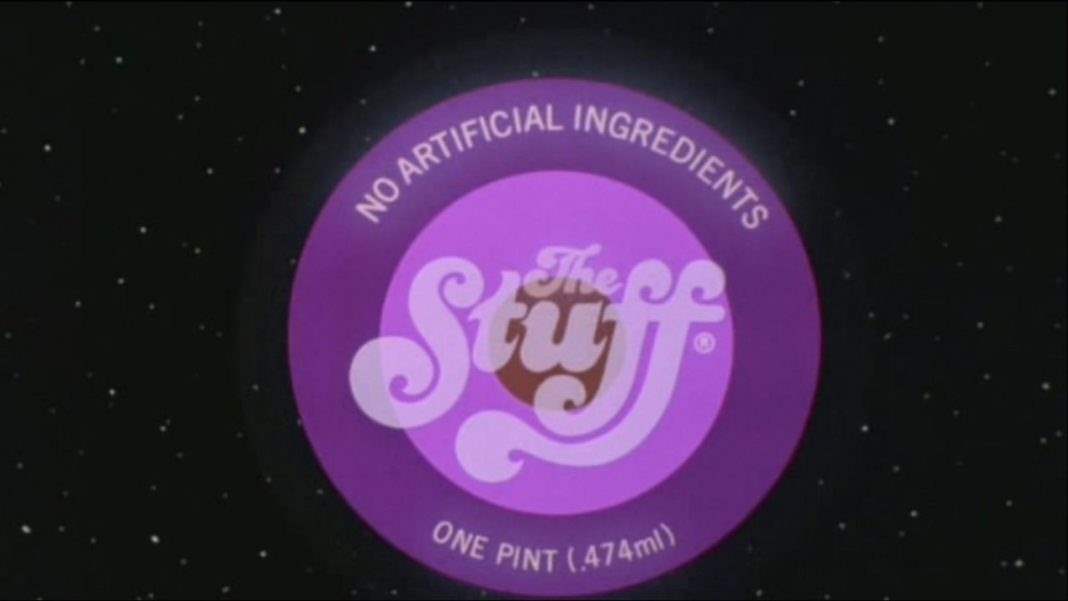In Infinity Pool, living nepo-baby apologia Brandon Cronenberg finds author James Foster (Alexander Skarsgard) half-heartedly searching for inspiration in writing a long-gestating–though perhaps not hotly anticipated–sophomore novel at an exclusive beachside resort, accompanied by his wife-turned-financier Em (Cleopatra Coleman). Foster draws the attention of Mia Goth’s Gabi and her husband, who invite the couple to join them on various excursions outside the resort. All is relatively well, despite some unspoken sexual tension between the outgoing Gabi and insular James, until he accidentally kills a poor local farmer in a hit-and-run accident on the drive back to the resort from a nearby beach.
It’s here that any spools of sanity begin to unwind rapidly. Li Tolqa, the fictional European nation in which the resort is located, has some decidedly strange customs when it comes to the legal process. According to Li Tolqan tradition, James’ punishment is to be killed by the deceased farmer’s oldest son as restitution for the accidental death. That is, unless they agree to pay a sizable fee and have James cloned. The couple are then forced to watch the double die in James’ place.
Em is understandably disgusted by the whole affair, but James–an emasculated worm in the form of a blonde Adonis–finds himself oddly entranced by the vision of his own body gushing technicolor red. Released back to the resort, James is drawn by Gabi into what amounts to a gang of uber-rich “zombies”, as they sarcastically refer to themselves. These yearly visitors to Li Tolqa get their jollies engaging in violent crime, safe in the knowledge that their freshly-formed doubles will be the ones to bear the deadly consequences.
Also See: The Brood is Cronenberg’s Most Autobiographical Movie: Here’s Why
Coming on the heels of a year rife with eat-the-rich posturing in films like Glass Onion, The Menu, and Triangle of Sadness, Infinity Pool’s own attempts at high-society takedown feel less vital. While the visceral horror (and viscera) on screen certainly packs a gut-level punch, Cronenberg’s analogy feels at once tired and overwrought. The images employed might be darker and more psychologically fraught than anything served up by Ralph Fiennes’ vengeful chef, but the tip of the metaphorical knife doesn’t feel any sharper.
Infinity Pool works best when its anti-rich screed fades into the background, and lets Cronenberg’s prodigious technical acuity–and other more explicitly physiological obsessions–take center-stage. The director frames human flesh like noone else, except for maybe his dad. Gabbi and James are often seen in excruciatingly tight close-up, their eyeballs occupy entire frames, beads of sweat (and every other bodily fluid) drip and stream in giant rolling dollops across the screen. The pearly oceanic vistas of Li Tolqa feel bland in comparison. What good is plain-old luxury compared to the gloopy delights of the human machine?
Unfortunately, the film can’t help but return to the far-less interesting outrage over elitist excess. The sentiment is certainly one worth investigating, but Cronenberg can’t seem to find anything new to say about it. Late in the film, an injured James is paraded down a country road while Gabi, drunk, recites a savage review of his first novel. In the review, the critic proclaims that Foster has “nothing new to say, and lacks the words to say it”. Infinity Pool purports to have plenty to say about all manner of subjects–masculinity, capitalism, class disparity etc. But here, the normally eloquent Cronenberg lacks the words to say anything interesting about them.



